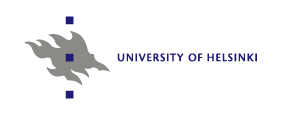- FIN-CLARIAH Research Infrastructure
A new national research infrastructure initiative FIN-CLARIAH for...
8.12.2021 8:12 by eahyvone - WarMemoirSampo published on December 3, 2021
A new “Sampo” application, “WarMemoirSampo”...
8.12.2021 8:04 by eahyvone - Five new SeCo papers accepted for the ISWC 2021
The 20th International Semantic Web Conference (ISWC 2021), the...
2.8.2021 6:53 by eahyvone
- Annastiina Ahola, Lilli Peura, Rafael Leal, Heikki Rantala and Eero Hyvönen: Using generative AI and LLMs to enrich art collection metadata for searching, browsing, and studying art history in Digital Humanities
- Eero Hyvönen, Petri Leskinen, Alexandre Lionnet, Blandine Blukacz-Louisfert, Pierre-Etienne Bourneuf, Davide Rodogno, Grégoire Mallard, and Florian Cafiero: Linked Open Data Approach to Study the Assembly Minutes of International Organizations and Their Underlying Prosopography in the Real World Context
- Eero Hyvönen, Petri Leskinen, Alexandre Lionnet, Blandine Blukacz-Louisfert, Pierre-Etienne Bourneuf, Davide Rodogno, Grégoire Mallard, and Florian Cafiero: A Linked Open Data Infrastructure for Studying Historical Activities of International Organizations: First Results on the League of Nations (1920-1946)
- Petri Leskinen, Eero Hyvönen, Alexandre Lionnet, Blandine Blukacz-Louisfert, Pierre-Etienne Bourneuf, Davide Rodogno, Grégoire Mallard, and Florian Cafiero: A Linked Open Data Service and Semantic Portal to Study the Assembly Minutes and Prosopography of the League of Nations (1920–1946)

| Constellations of Correspondence: Relational Study of Large and Small Networks of Epistolary Exchange in the Grand Duchy of Finland (CoCo) |

Project Overview
Constellations of Correspondence (CoCo) is a four year consortium research project ending in 2025. The aim of bringing together this consortium of humanists and researchers in digital humanities (DH) and computer science (CS) is to interrogate an unused treasure in the major Finnish cultural heritage institutions, namely the registered metadata of all letters, public and private, kept in the collections of archives, libraries, and museums, relating to the period of the Grand Duchy of Finland (1809–1917). This is the first project to explore this correspondence catalogue data in a systematic and comprehensive way and to enrich and analyse it to answer ambitious humanistic and computational research questions. The main end-results will be an open semantic portal for different user needs, with humanities-driven data analysis tools, and scholarly analyses of the data. The CoCo project is follow-up research of our earlier international work From Reassembling the Republic of Letters to "LetterSampo – Letters on the Semantic Web", a series of research collaborations with the University of Oxford, Stanford University, Huygens Institute and others in the Pan-European COST action "Reassembling the Republic of Letters 1500–1800", starting from 2014.
Letters – words written on paper, enclosed in an envelope and transported to the recipient – were everywhere in the 19th-century world. This ancient means of communication had become a more efficient form of interpersonal and inter-institutional contact, as transportation speeded up, and it permeated all layers of the society as literacy spread and societies on the path to modernization created both new needs and means for written communication. This permeability means that letters are among the most important research materials, when scholars study canonical persons and major historical events. However, enquiries based on quantitative analysis are absent both from the studies that use letters as sources and from the enquiries to epistolary cultures or letter-writing as a social practice. Instead of close-reading select published or unpublished letters our research questions cast a wider net: What kind of patterns of epistolary communication can we recognise in our integrated dataset with a combination of quantitative and qualitative methods? Who could write a letter to whom in the 19th-century estate society?
The project is greatly indebted to the experiences accumulated and methods developed in the COST Action Reassembling the Republic of Letters 1500–1800 (2014–18) which charted and analysed both the metadata and the content of letters that knit together premodern Europe, and other related projects such as Mapping the Republic of Letters (Stanford), Cultures of Knowledge (Oxford), and ePistolarium (HUYGENS ING, Netherlands). However, a more appropriate translation for the epistolary exchange studied in these projects would be the ʻrepublic of the learned’, as it connected a prosperous, meritocratic, and transnational elite. The dataset of the proposed project is temporally and geographically more restricted but, due to these delimitations, much more comprehensive regarding different social layers of 19th-century epistolary culture.
Objectives
The CoCo consortium project has two main objectives:
- To enhance the value and research potential of epistolary metadata provided by the key cultural heritage institutions. This is a rich material and, in many cases, already immediately available (names of senders and recipients, dates, often places). As an integrated and harmonised dataset this material can enable a whole series of new observations about the cultural, political, and economic networks in the long 19th century of Finnish history, counterbalancing the collection policies of individual cultural heritage (CH) institutions. The main outcome of the project will be a harmonised and openly published dataset of Finnish epistolary metadata, a web user portal for accessing the dataset (see research on LetterSampo portal), and humanities-driven open-source data analysis research tools for further study of the dataset. A further aim is to facilitate the collaboration between researchers and cultural heritage institutions on the topical issue of semi-automated and manual metadata production, including entity reconciliation (identities of persons, places, and letters).
- To create a new entry point for all Humanities researchers who make use of letters as their sources, and to study the social relations of the Grand Duchy with novel methods. The main premise of the proposed project is two-fold. Our point of departure is the assumption that the patterns of 19th-century correspondence can function as a proxy for a 19th-century social network. The letters do not reflect a “society” that hides behind them; rather, in their materiality, they are the society. In other words, we believe that although social connections cannot be reduced merely to letter-writing, the analysis of integrated epistolary metadata will highlight social structures as they unfold chronologically and geographically throughout the century.
The project started with a kick off event (in Finnish) on 17.9.2021. For more details about the CoCo project, see the CoCo homepage.
Portal and data service online
The LetterSampo Finland portal https://kirjesampo.fi and its Linked Open Data service on the Linked Data Finland platform were opened on May 27, 2025, at a special publication event in Helsinki, Finland. The data is available at the Zenodo.org service: https://zenodo.org/records/15210590.
How to refer LetterSampo Finland
At the moment the most comprehensive academic general reference to LetterSampo Finland is E. Hyvönen. P. Leskinen, H. Poikkimäki et al.: LetterSampo Finland knowledge graph, data service, and semantic portal for researching epistolary data of the Grand Duchy of Finland (1809-1917), 2025 (cf. below). The other papers below can be used for reference to more focused and related topics.
Acknowledgements
Our research is funded by the Academy of Finland.
Contact Persons and Collaborators
- Prof. Eero Hyvönen, Aalto University. PI at Aalto University.
- Dr. Jouni Tuominen, University of Helsinki and Aalto University. PI at the University of Helsinki, Helsinki Centre for Digital Humanities (HELDIG).
- Dr. Ilona Pikkanen, the Finnish Literature Society (SKS). Project consortium leader and PI at the Finnish Literature Society.


